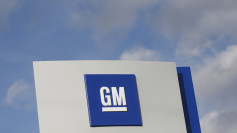Despite predictions of a stronger performance in the second quarter, Tesla continues to face challenges in the European market. Data released on Wednesday by the European Automobile Manufacturers' Association (ACEA) showed that Tesla's new car registrations in Europe for April amounted to only 13,951 vehicles, marking a 2.3% decline from the same period last year and hitting the lowest level since January 2023.
This downturn for Tesla contrasts sharply with the overall European electric vehicle market, which saw a 14% year-over-year increase in April. Tesla's shipments from its Shanghai factory also experienced a decline.
In an earnings call for the first quarter, Tesla reported a 55% decrease in net profits to $1.13 billion and a drop in operating margin from 8.2% in the last quarter of the previous year to 5.5%.
Elon Musk had anticipated that Tesla would overcome various challenges from the first quarter, such as disruptions in Red Sea shipping and a suspected arson near its German factory. However, Tesla's situation has not improved as expected.
The recent months have seen some countries, including Germany and Sweden, either stop or reduce subsidies for electric vehicles, casting a shadow over the growth of EV sales in Europe.
In Germany, Tesla's largest European market, most brands were impacted by the phasing out of subsidy policies, but Tesla's performance last month was particularly weak. In April, while electric vehicle registrations in Germany remained stable, Tesla's sales plummeted by 32%.
In the UK, Tesla's new car registrations fell by 25% in April, with a cumulative decline of 14% for the first four months of the year.
Besides the challenges of declining sales across Europe, Tesla is also facing discontent from key customers-leasing companies. If not handled properly, Tesla's situation in the European market could deteriorate further.
Previously, leasing companies accounted for nearly half of Tesla's sales in Europe. Although Tesla's frequent price cuts have stimulated sales, they have also significantly decreased the value of its vehicles, causing profits from European leases to suffer.
Leasing companies operate by purchasing new vehicles and renting them to consumers. When setting rental prices, these companies consider the expected residual value of the vehicle, which is the estimated resale value at the end of the lease period. The profitability of leasing companies largely depends on the realization of these residual values.
However, if the prices of new vehicles suddenly drop significantly in the market, it negatively impacts the residual values of leased vehicles. At the end of the lease period, the actual resale prices of these vehicles could be much lower than initially estimated, directly leading to financial losses for the leasing companies.
Reports suggest that Tesla may offer special discounts to leasing companies, but these discounts could further harm its profit margins.





